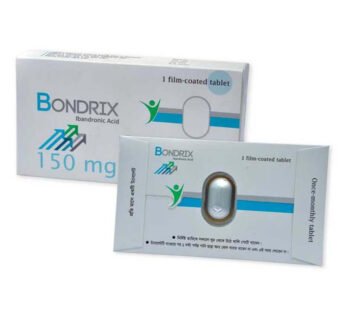Combomax 0.4 mg+0.5 mg
Description
Indications: Combomax capsule is indicated for:
- The treatment of moderate to severe symptoms of benign prostatic hyperplasia (BPH).
- Reduction in the risk of acute urinary retention and the need for surgery in patients with moderate to severe symptoms of BPH.
Consult a registered doctor before using this medicine.
Pharmacology:
Combomax is a combination of two drugs with complementary mechanisms of action to improve symptoms in patients with BPH:
Tamsulosin:
- An alpha1-adrenoreceptor blocker that addresses the dynamic component of BPH.
- It works by inhibiting alpha1A-adrenoreceptors in the smooth muscle of the prostate and bladder neck, leading to relaxation of these muscles. This helps improve urine flow.
- Tamsulosin specifically targets the alpha1A and alpha1D subtypes, which are predominant in the prostate and bladder, contributing to symptom relief.
Dutasteride:
- A dual 5-alpha reductase inhibitor that affects the static component of BPH by preventing the conversion of testosterone into dihydrotestosterone (DHT), a potent androgen responsible for prostate growth.
- Dutasteride lowers DHT levels, reducing prostatic volume and treating the underlying cause of BPH.
Dosage & Administration:
Adults (including elderly):
- The recommended dose is one capsule (Tamsulosin 0.4 mg & Dutasteride 0.5 mg) taken orally approximately 30 minutes after the same meal each day.
- The capsules should be swallowed whole and not chewed or opened.
Renal Impairment:
- No dosage adjustment is required for patients with renal impairment.
Hepatic Impairment:
- In patients with mild to moderate hepatic impairment, caution should be exercised.
- Contraindicated in severe hepatic impairment.
Interactions:
There have been no formal drug interaction studies for the Tamsulosin-Dutasteride combination.
Tamsulosin:
- May interact with drugs that lower blood pressure, such as PDE5 inhibitors and other alpha-1 blockers, leading to enhanced hypotensive effects.
- Caution is advised when combining with cimetidine (as it can increase Tamsulosin levels).
- No significant interactions have been seen with warfarin or other drugs such as nifedipine or theophylline.
Dutasteride:
- Concomitant use with strong CYP3A4 inhibitors (like ritonavir or ketoconazole) may increase Dutasteride serum levels. Adjusting the dose might be necessary if side effects occur.
- Dutasteride does not significantly alter the pharmacokinetics of Tamsulosin, terazosin, or other common drugs like warfarin.
Contraindications:
- Women, children, and adolescents.
- Hypersensitivity to any component of the formulation, including Dutasteride, Tamsulosin, soya, and peanuts.
- History of orthostatic hypotension.
- Severe hepatic impairment.
Side Effects:
The most common adverse reactions include:
- Impotence
- Decreased libido
- Breast disorders (including enlargement and tenderness)
- Ejaculation disorders
- Dizziness
Pregnancy & Lactation:
Pregnancy:
- Contraindicated for use in women, especially those who are pregnant or may become pregnant.
- Dutasteride may cause harm to a male fetus, inhibiting the development of external genitalia.
Lactation:
- It is not known whether Tamsulosin or Dutasteride are excreted in human milk.
Fertility:
- Dutasteride may affect sperm count, motility, and semen volume, potentially impacting male fertility.
Precautions & Warnings:
- Cardiac Failure: The incidence of cardiac failure is slightly higher with the combination therapy, though it remains rare.
- PSA Levels: Monitoring of serum prostate-specific antigen (PSA) is required, as Tamsulosin-Dutasteride can reduce PSA levels by around 50%.
- Prostate Cancer Risk: There is an increased incidence of high-grade prostate cancer in men treated with Dutasteride, although the relationship remains unclear.
- Hypotension: Orthostatic hypotension may occur, so patients should be cautious, especially at the start of treatment.
- Intraoperative Floppy Iris Syndrome (IFIS): Patients on Tamsulosin may experience complications during cataract surgery.
Overdose Effects:
-
Dutasteride: No significant adverse effects observed with doses up to 40 mg/day (80x therapeutic dose). There is no specific antidote, so symptomatic and supportive treatment is recommended.
-
Tamsulosin: Overdose may cause acute hypotension, vomiting, and diarrhea. Treatment involves fluid replacement and, if necessary, vasopressors.
Therapeutic Class:
- BPH/Urinary retention/Urinary incontinence
Storage Conditions:
- Store in a cool and dry place, protected from light.









Reviews
There are no reviews yet.